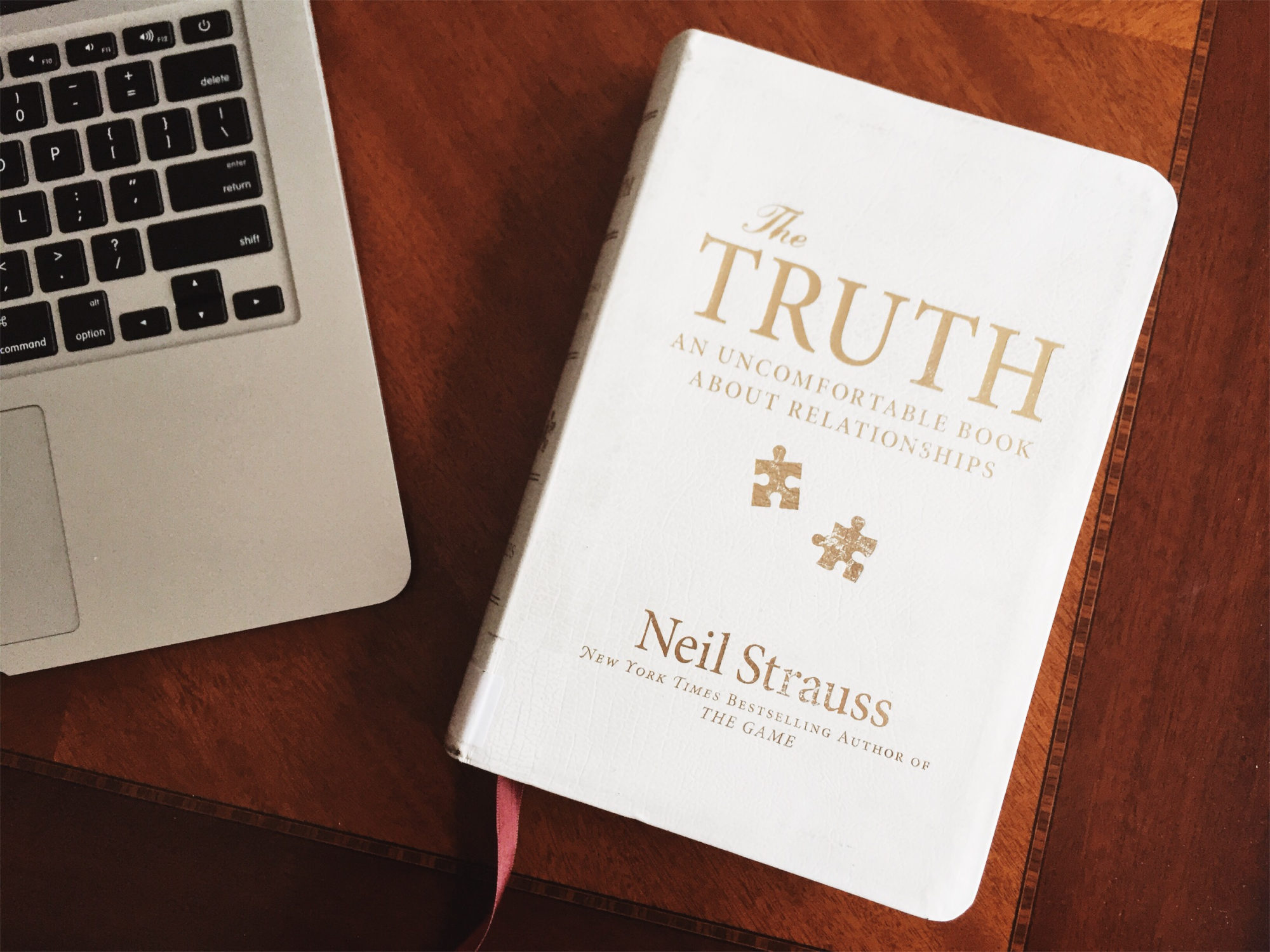
I discovered this “uncomfortable book about relationships” from a video intro on Youtube. The video was animated based on a section in The Truth where the “therapist” was trying to acknowledge the “addicts” the cause of their behaviour..
I resonated quite deeply with the idea that a person’s upbringing can leave almost permanent marks on the rest of the life. Feeling out of touch with emotion is something I don’t even notice anymore – it is already a part of my life. I rarely cried or complained because my parents taught me to toughen up during any hardship. There is a deeper root for why I had to “be a man” sometimes, which might be covered in the blog entry for this specific topic. But for now, I’ll stick with what Neil Strauss discovered about relationships and commitment.
This book can be segmented into 3 parts:
- Rehab for sex addiction;
- Give up rehab, explore alternative relationships;
- Decide to pursue monogamy.
This book lost me half way through. In my opinion, most of the insightful information arose from the time when Neil was in rehab gradually building understanding of the possible explanations for his cheating behaviour. The second phase of the book is full of detailed sexual description which isn’t what I find valuable. However, at the beginning of his exploration, he referred to several books related to this topic which I may read for further discovery in a more scientific way…
The notes in this post are contents that I find somewhat surprising or resonate with my experience.
There are mainly 3 ways of raising children:
- Functional bonding. Parents love and take care of the needs of the child with healthy limits. The child will have healthy, secure self-esteem and relationships.
- Neglect. Care giver is detached or doesn’t give appropriate nurture (i.e. not physically present or emotionally distant). These children will often be depressed and indecisive, see themselves as flawed and less valuable. In relationship, they have anxious attachment, need constant reassurance to not feel abandoned.
- Enmeshment. Parent gets his or her needs met through the child (i.e. accomplishment, emotional support) and often appears to be overly emotional or anxious about the child. The child will grow up loosing their sense of self, avoid letting anyone get too close and “such the life out of them again”. They develop avoidant attachment – they may seek relationship connection but once they are in one, they put up walls to distant themselves.
In Neil’s situation, when in a relationship with the one he loves and wants to have a future with, he still slipped with other girls even thought he knew all the wrongs of doing so. After he discovered his past, he realized that
It’s an unconscious reaction to the relationship with my mother. I’m punching holes in the vacuum-sealed plastic bag of my relationship so I don’t suffocate.
When there’s a problem in the relationship, you feel shame as if something is wrong with you. This self-blame is a result of the enmeshed past. Here, the book introduced a term “defensive grandiosity” which makes your immediate reaction defend in order to gain the self-esteem back. The hurtful behaviour to others is driven by “the best defence is a good offence“. It drives other away, makes you feel like you have power, and creates a sense of superiority to maintain the self-esteem.
The brain has safety circuits that are formed when we experience repetitive physical and emotional care from nurturing, predictable, secure figures. In the situation where your parent failed to take care of you for any reason, regardless a babysitter was hired or not, the fact that the parent didn’t provide enough nourishment can result in little or no safety-circuit formation in your brain. So you can fall in love for the short term but long-term emotional attachment may be harder to achieve and sustain.
We seem to have full control of our choice, but if your brain is not healthy – does not have the option of long-term attachment – you are only as faithful as your options. In other words, it’s not the problem of your choice. Your brain simply doesn’t provide you the option of sustaining a long-term relationship.
In the next section, Neil gave up changing himself because he found out the more he tried to keep the relationship, the more arguments they had. He started searching for alternative relationships.
At the beginning of this journey, several books were referenced for greater explanation of the non-monogamy idea.
From the book Anatomy of Love by Dr. Helen Fisher:
In our evolutionary history, females evolved strategies to acquire resources:
- select a single man to reap a lot of benefits from him;
- engage in many men to acquire some resources from each.
Her conclusion: we are just adulterous animals.
From the book Marriage, a History by Stephanie Coontz:
Monogamy is not natural. Historically, it increases the number of available women and reduced the number of single men. Which creates a benefit to the society that lead to less competition for partners and reduced crime and violence. Marriage was an economic and political institution about merging resources, forming alliances, or creating bloodline for gene reproduction.
The idea of Polyamory: love is not some kind of scarce resource that can flow only into a single person. Just as a person can love parents, children, pets, and all kinds of other things at the same time, so too can they love different partners without the emotions for one detracting from the emotions from the other.
The explanation of “love all” is rather intriguing to me. The social norm of having only one partner creates so much drama. This is mainly caused by the mentality which, in a relationship, one tend to see the other one as belonging.
Rather than continuing with the extra descriptive sexual content, I took down my notes and returned The Truth. There are more information along the line to dig through, and I’ve got some good idea of which book to start next from the reference here.
I have a feeling that my worldly view might have a little shift after all these discovery.

One thought on “The Truth – by Neil Strauss | Book Notes”
Comments are closed.